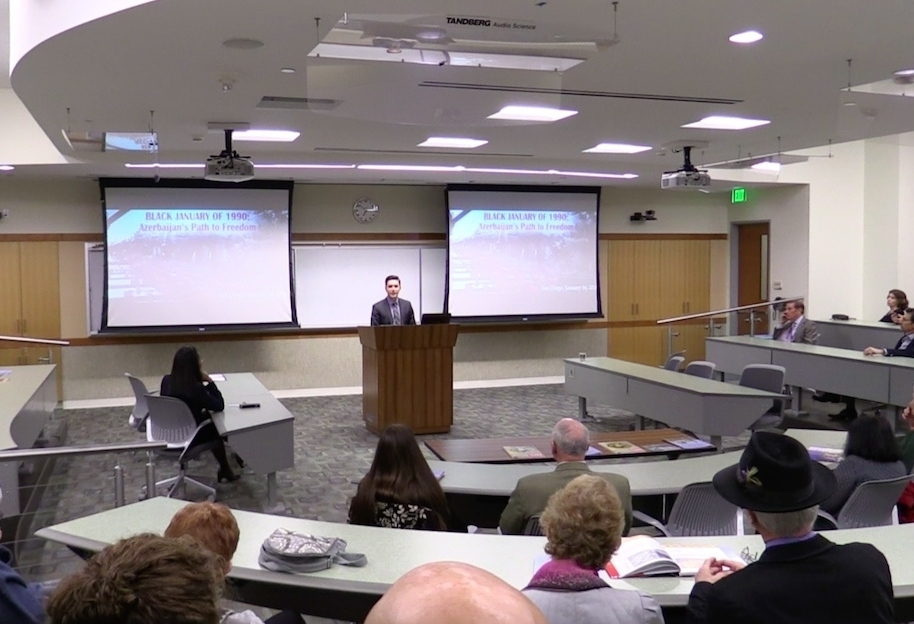



Azerbaijan's Black January tragedy commemorated in California

Washington, January 19, AZERTAC
The 28th anniversary of the January 20 tragedy of Azerbaijan has been commemorated at the influential Thomas Jefferson Law School in San Diego, California. The event was jointly organized by the Consulate General of Azerbaijan in Los Angeles and the San Diego Baku Friendship Association.
In his opening remarks, Executive Director of the San Diego Baku Friendship Association Martin Kruming underlined the importance of the commemoration and thanked the guests for their presence at the event, paying tribute to the innocent victims of the bloodshed.
Addressing the event, Dean of the Thomas Jefferson Law School Joan Bullock noted that Black January played a significant role in the struggle of the Azerbaijani people for freedom and independence.
In his remarks, Consul of the Consulate General of Azerbaijan Orkhan Rustamli described the Black January tragedy as a heroic page in Azerbaijan's history paving the way towards the nation's eventual independence and freedom in 1991 following the collapse of the USSR. He noted that Azerbaijan's national leader Heydar Aliyev, who would later become founder and President of modern Azerbaijan, fiercely condemned the bloodshed while being in Moscow. "His defiance helped to inspire the Azerbaijani people and Aliyev became a leader of the struggle for liberty," Rustamli added.
Speaking at the event, the American journalist Raoul Lowery Contreras described the Black January as a military aggression and crime committed by the Communist regime to suppress the national liberty movement in Azerbaijan and destroy the freedom spirit of Azerbaijani people.
Following the speeches, the event featured the screening of a short documentary on Black January prepared by Azerbaijan's Consulate General.
The event concluded with a mesmerizing performance of classical music by San Diego's prominent violinist Julia Pautz.
On January 20, 1990, Azerbaijan's capital city of Baku was invaded by 26,000 Soviet troops, which, at the order of the Soviet leader Mikhail Gorbachev and his Politburo, stormed the city and began shooting indiscriminately into the peaceful demonstrators. Hundreds of civilians were killed, including children, women and elderly, people of different ethnic and religious backgrounds, both Muslim, Christian and Jewish. And a thousand were wounded. The pretext was a massive popular uprising in Baku, calling for Azerbaijan's independence from USSR. This mass killing went down in Azerbaijan's history books as the 'Black January' tragedy.
Yusif Babanli
Special Correspondent
31 years pass since the Bashlibel tragedy, one of the bloodiest pages of our history
Azerbaijan's Foreign Ministry issues statement on March 31 – Day of Genocide of Azerbaijanis
Krakow Azerbaijani House commemorates victims of Khojaly genocide
Khojaly genocide victims commemorated in Mexico
Scottish University of Aberdeen commemorates 32nd anniversary of Khojaly Genocide